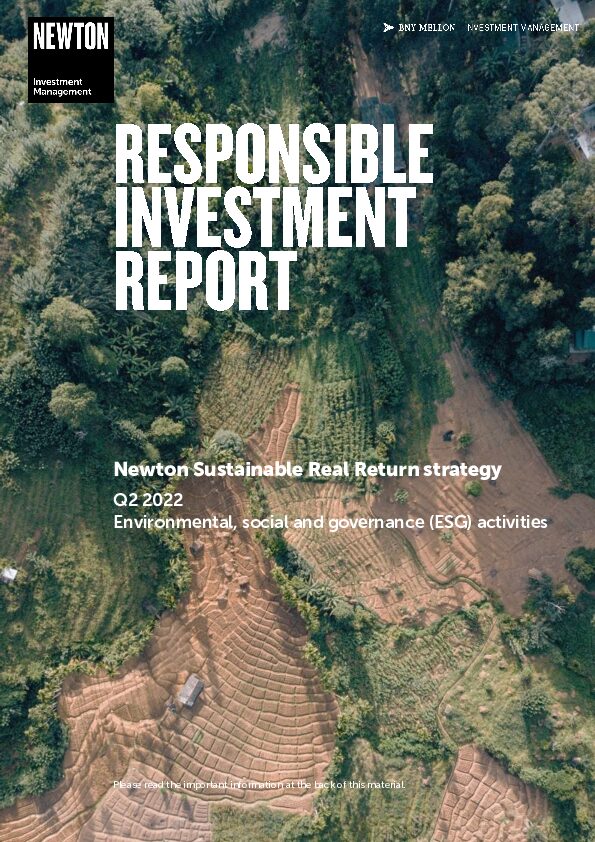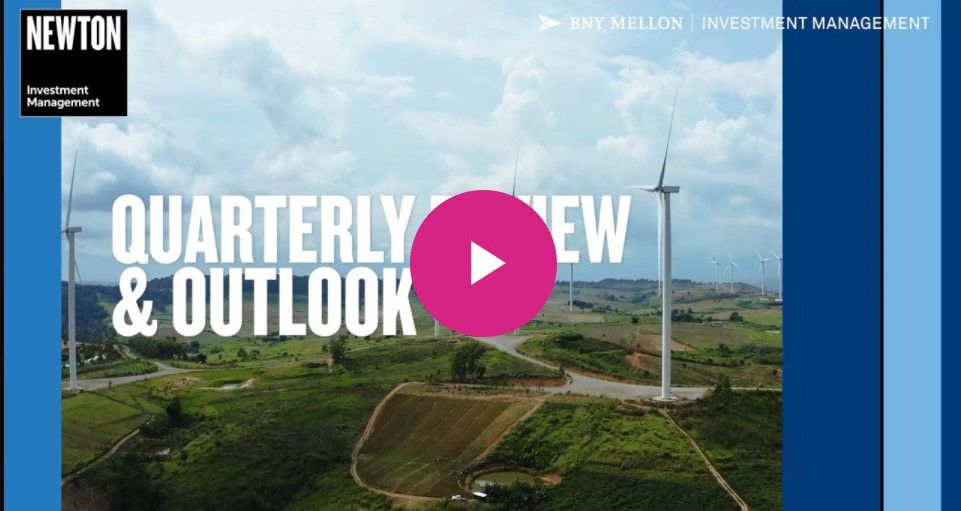Our philosophy and process
- Sustainable ‘red lines’ ensure the poorest-performing companies are not eligible for investment, such as companies which violate the UN Global Compact Principles of sustainable corporate performance. Companies which we think are incompatible with the aim of limiting global warming to 2°C are also excluded.
- We engage with companies where ESG issues are resolvable and can be improved, and report on that activity. We will not invest in any company that derives more than 10% of its turnover from the production and sale of tobacco.
Every time we consider a security or look at an industry or country, it’s in the context of what’s happening across the world. We believe the investment landscape is shaped over the long term by some key trends, and we use a range of global investment themes to capture these.
Investment team
Our Sustainable Real Return strategy is managed by an experienced team with a wide range of backgrounds. Our global sector analysts and investment managers are located on a single floor in London, which helps to ensure that the investment process is flexible and opportunistic. Our dedicated responsible investment team is an integral part of the investment decision-making process. Guided by our global investment themes, the team works together to identify opportunities and risks through research and debate.
- 22
- years’ average investment experience
- 12
- years’ average time at Newton
-

Philip Shucksmith
Portfolio manager, Real Return team
-

Matt Brown
Portfolio manager, Real Return team
-

Suzanne Hutchins
Portfolio manager, Real Return team
-

Aron Pataki
Portfolio manager, Real Return team
-

Andy Warwick
Portfolio manager, Real Return team
-

Lars Middleton
Portfolio manager, Real Return team
-

Brendan Mulhern
Global strategist, Real Return team
-

Catherine Doyle
Investment specialist
-

Chris King
Investment team support
Strategy profile
-
Objective
-
The strategy has an absolute-return style performance aim, while seeking to preserve capital, through security selection, diversification and simple hedging strategies. The strategy invests in well-run businesses that both have durable financial and competitive positions and manage positively the material impacts of their operations and products on the environment and society.
-
Performance benchmark
-
The strategy aims to deliver a minimum return of SONIA (30-day compounded) +4% per annum over 5 years before fees.* In doing so, the strategy aims to achieve a positive return on a rolling 3-year basis. However, a positive return is not guaranteed and a capital loss may occur.
* Please note that on 1 October 2021, the performance benchmark for this strategy changed from 1-month GBP LIBOR +4% to SONIA (30-day compounded) +4%. -
Literature
-
Your capital may be at risk. The value of investments and the income from them can fall as well as rise and investors may not get back the original amount invested.






